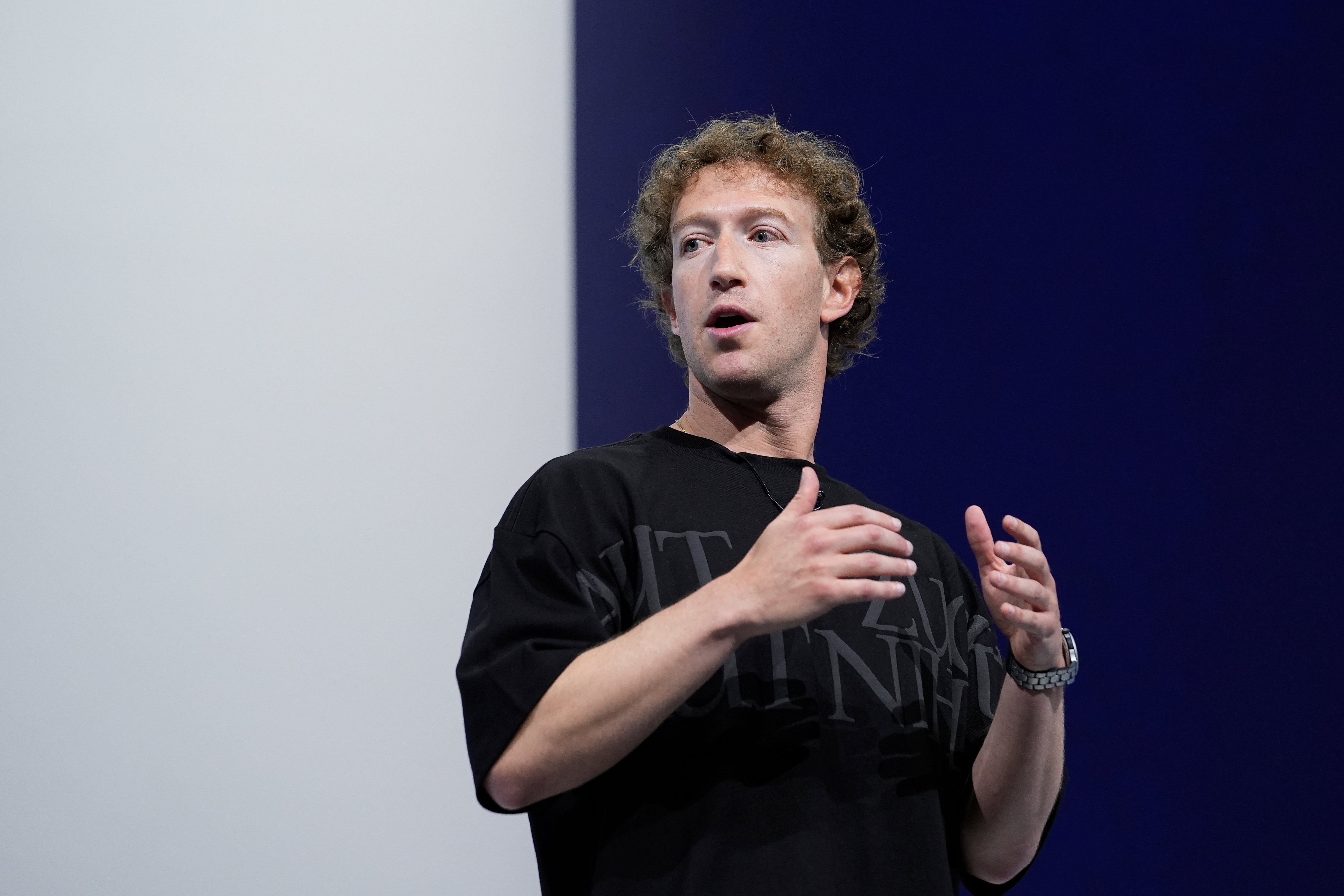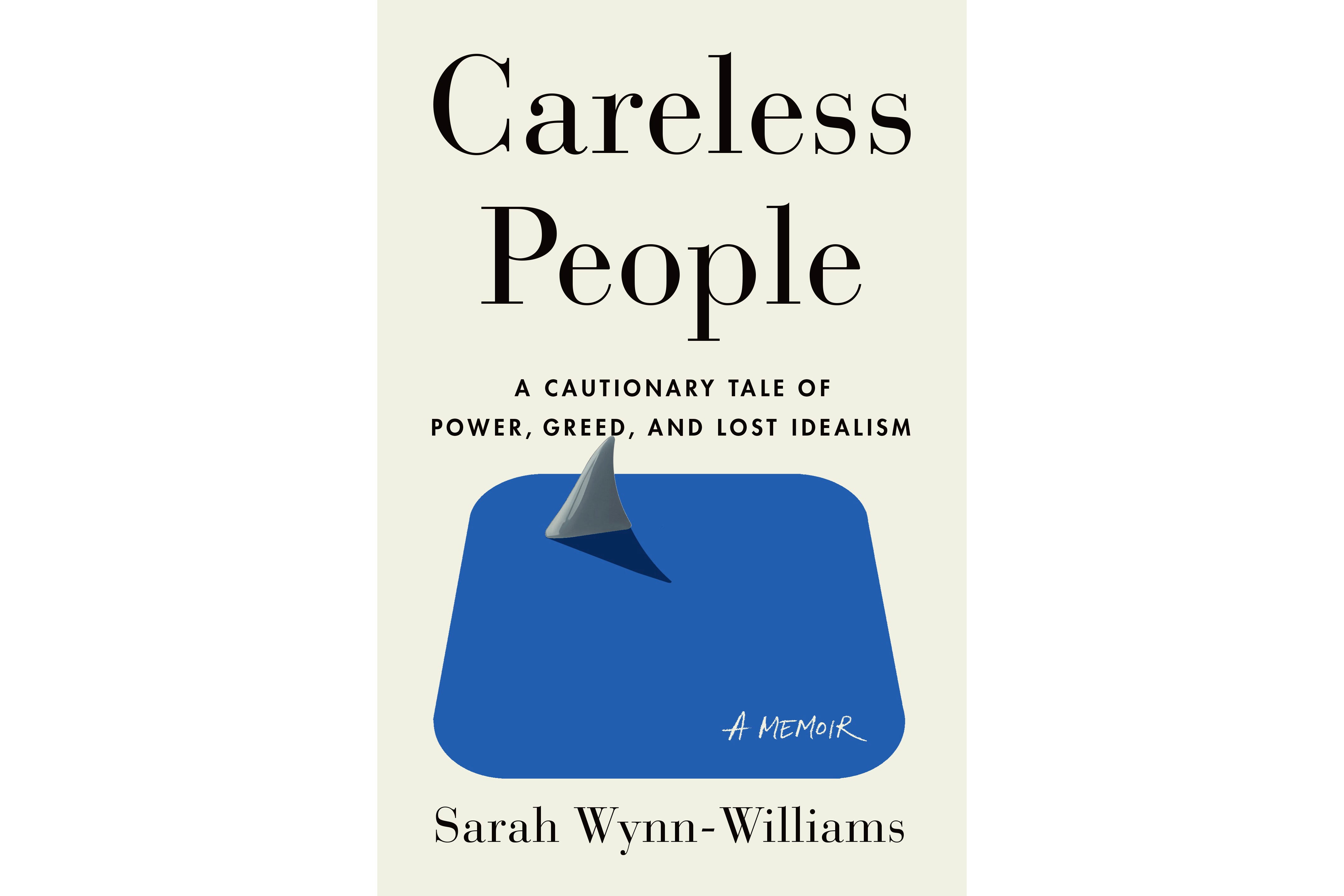How a Meta exposé reveals a disturbing truth about Mark Zuckerberg
Fresh from celebrating Donald Trump’s victory, the Facebook tycoon professes to be all about freedom... except when it comes to criticism of himself, says Chris Blackhurst


There is no greater proponent of freedom of expression than Mark Zuckerberg. The Meta boss sits atop a digital empire used by 3 billion worldwide or, as the company likes to say, “empowers them to share ideas and offer support”. His domain covers Facebook, Instagram, Threads and WhatsApp. Truly, he is a king of the age.
Enabling folk to say what they want is at the heart of his success. It’s how he has amassed his fortune, providing platforms and networks for the exchange of views, thoughts, experiences, opinions. They’re monitored, but he tries to keep the checks and balances down – otherwise users would look elsewhere. Every time regulators try to impose something heavier, there is kickback. Increasingly, thanks to his new pal, Donald Trump – Zuckerberg was given star billing at the inauguration along with the other tech bros and he was co-host at that evening’s presidential ball – he is in his pomp, an untouchable global master.
When he dropped fact checking recently, there was scarcely a dissenting voice. It was what Zuckerberg wanted, it was the way things were heading and anyway there was always the suspicion that he was only ever paying lip-service to the policy, it was a measure he could do without, given half the chance. This week, he’s announced they will start testing crowd-sourced “Community Notes” to replace the fact checkers. It remains to be seen how that will work in practice.
The real test of someone such as Zuckerberg is how they react when the tables are turned on them. In his case, the answer is badly. The whiff of hypocrisy in Meta’s response to a book, Careless People, by Facebook’s former director of global policy Sarah Wynn-Williams, is overpowering.
Her memoir does not hold back. She accuses a senior executive of sexual harassment and portrays the company’s chiefs as caring little for the potential harm Facebook might cause to human rights. Wynn-Williams says she was sacked for raising accusations about the senior executive’s behaviour. Senior management floors are populated by a combination of the weird, ultra-aggressive and sex-obsessed, she alleges.
First, Meta issues a statement condemning the memoir as a “mix of out-of-date and previously-reported claims about the company and false accusations about our executives.” PR-wise, that’s an odd phrase: unclear, inviting the questions as to which is the historic material and which is untrue?

To compound the confusion, Meta adopted a second tactic, of pushing out a wave of current and former employees’ social media posts dismissing the book as containing accounts they did not recognise. That was accompanied by a detailed breakdown on the corporate website, listing the parts they regarded as ‘old news’.
Still, it all smacked of protesting too much. A better ploy, arguably, if the book was as rubbish as they maintained, would have been to ignore it completely, to adopt a lofty disdain, to not draw attention to its contents with every shrill accusation.
But oh no, silence was not an option. This was merely the beginning of it. So incensed were Zuckerberg and co that they sought to enforce a non-disclosure agreement (NDA) against Wynn-Williams. These contracts, or non-disparagement agreements as they’re sometimes known, are notoriously difficult to implement. The courts don’t like them, viewing them as forcing somebody to act against their will.
It’s also the case that by going down the route, the claimant is giving publicity to whatever it is they’re complaining about.
You might think that Meta would know that, or it did and chose to ignore it, presumably on orders from the top. Because Meta went all-out against Wynn-Williams. It shut her down, forcing her to cancel promotions and a sales tour, pending the settlement of the NDA by arbitration.
Glaringly, their suppression of free speech has not seen the book withdrawn from sale. It’s still freely available. There may be no sales push involving Wynn-Williams but that hardly matters, since her work is securing screeds of free media attention as journalists and social media report Meta’s aggressive tactics.
Careless People is very much Wynn-Williams story. It’s by her, it’s in the first-person and it’s intensely personal. It contains events that only she could have witnessed. It’s her perception. Challenging that is extremely hard. To do that, Meta will have to put staffers and ex-staffers against her, head to head.
The company presumably thought of this but decided to carry on anyway. What is alleged to have occurred is presumably why Wynn-Williams was prepared for the book to carry her name. She could have written it anonymously or it could have been dressed up as fiction based on true events, but she chose not to.
Again, wiser, counsel might have prevailed to recommend not fuelling the oxygen of publicity for her title and letting it wither on the vine. As for Wynn-Williams herself, she could discover as a whistleblower that finding future employment was not easy and may in time, come to regret what she did (she doubtless appreciated this and went ahead regardless, a testament to her resolve and bravery).
Instead, due to Meta’s over-the-top clamping down, her book is now everywhere, in the press, social media and crucially in the shops and on sale online.
It’s unlikely that Zuckerberg has ever viewed that TV comedy favourite, Dad’s Army. A hackneyed laugh about Britain’s Home Guard in the Second World War would hardly be his cup of fresh mint tea. If for some unlikely reason he did, he would have witnessed Corporal Jones famously declaring “they don’t like it up ’em.”
That’s where the great tech lord finds himself. He pronounces on the desire and need for freedom but is less keen and free when it’s aimed at his company.
Join our commenting forum
Join thought-provoking conversations, follow other Independent readers and see their replies
Comments
Bookmark popover
Removed from bookmarks